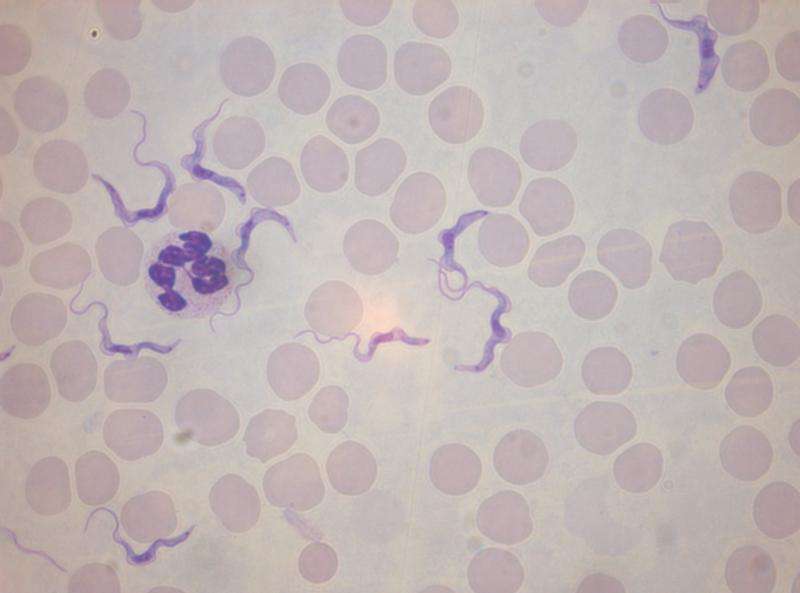Cancer-like forms of parasites may lead to new approaches to curing diseases

A study in the Proceedings of the National Academy of Sciences shows that some forms of the single celled parasites, Trypanosoma brucei and Toxoplasma gondii behave like cancer cells.
Research from an international collaboration has identified possible new approaches to curing parasitic diseases such as sleeping sickness and toxoplasmosis.
The study, in the Proceedings of the National Academy of Sciences, in the US, shows that some forms of the single celled parasites, Trypanosoma brucei and Toxoplasma gondii behave like cancer cells.
Geoff Hide, from the University of Salford's School of Environment & Life Sciences, joined researchers from the Universities of Sun Yat-Sen, China and UCLA, to publish the results.
Professor Hide said: "Over a five year period of collaboration, we have increasingly seen how the way in which parasites grow in their hosts shows similarities to how cancer cells spread. Following up this idea, we found evidence to support this new link and decided to publish these ideas."
Toxoplasma gondii is one of the most common human parasites and infects a third of the global population and one in ten people in the UK. The parasite mostly goes unnoticed but in exceptional circumstances can cause miscarriage, lung and eye disease. Trypanosoma brucei causes sleeping sickness in Africa and is responsible for thousands of deaths annually.
Variant forms of these two parasites exist which grow in an uncontrolled manner – rather like a cancer cell. In human cancers, such as leukaemia, normal cells in the blood change into cancer cells and begin to grow rapidly.

They then escape the normal control exercised by the body causing the growth of solid tumours or they spread rapidly around the body invading other tissues. In some animal examples, such as the Australian Tasmanian Devils, these cancer cells can be spread from one animal to another, like infectious parasites, causing tumours in the newly infected animal.
This research has for the first time, shown novel parallels between traditional cancers, these infectious cancers and infectious parasites. Variant forms of these parasites behave as cancer cells – they escape the control of the host and spread rapidly in the new host.
Professor Hide says the relationship is interesting because it suggests that the wide range of anticancer drugs available could offer new ways of controlling the infectious diseases.
He said: "This is a very important finding as these parasitic diseases are important both in the UK and cause devastating consequences in parts of Africa.
"If we can better understand the similarities between parasites and cancer cells, it may give us new approaches to future treatments.
Professor Hide worked with Professor Zhao-Rong Lun in China and Professor Francisco J Ayala in the USA to complete the report.
More information: Zhao-Rong Lun et al. Cancer in the parasitic protozoans and , Proceedings of the National Academy of Sciences (2015). DOI: 10.1073/pnas.1502599112



















